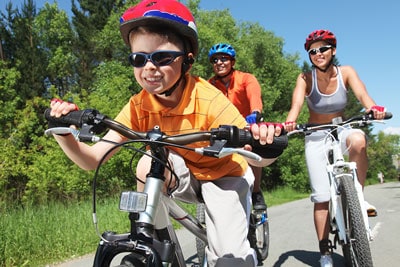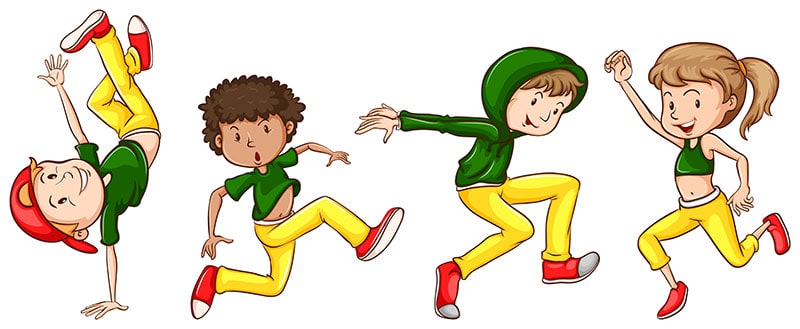Your Children and Promoting a Positive Body Image
Today, children and teenagers are more dissatisfied with their body image – their bodies and shape – than ever before.
Ever-younger girls and boys are being inundated with confusing messages regarding beauty, health and weight from both the media and society.
These messages are having a huge influence on how people view and evaluate their bodies ultimately impacting their body image and overall health. According to the Dove Global study (2005), 90% of girls (15-17) say they want to change some aspect of their appearance with the greatest dissatisfaction being related to weight and shape. The pressure to live up to an unrealistic beauty ideal has created a struggle in our children to develop a positive relationship with their bodies.
Parents play a crucial role in building a strong foundation for their children’s self-esteem. With education and role modelling, parents have the ability to help prevent eating and image issues in their children and combat body dissatisfaction.
In a society where weight is prejudiced and thinness is valued, here are some helpful strategies of how parents can promote a positive body image in their children:
Reflect on how you feel about your own body image
How parents feel about their own bodies can have a great influence on their children. A parent who is constantly making negative comments about their weight and appearance can teach their children that these are important concerns.
If dieting and excessive exercising is common in your household, children may come to believe that restrictive eating and unhealthy physical activity should be used to control weight. Being aware of your own struggles with body image and self-esteem can help you limit the negative and unhealthy messages that you may be sending to your children. Try to be a role model by speaking positively about your own body.
Compliment your children on skills and abilities rather than on appearance
Help your child build their self-esteem by focusing on what makes them unique and special. Instead of complimenting them on their hair or clothes praise them on their ability to share their toys with their younger sibling, how determined and hard working they were before their exam or being a positive role model for their teammates during their soccer match. Focusing less on appearance and more on abilities will teach your children to value the qualities that make them a good person.
 Promote activities that make them feel good about themselves
Promote activities that make them feel good about themselves
Encourage your child to find a hobby that they enjoy. Participating in activities that don’t focus on a person’s appearance can help build confidence and self-esteem. Whether it’s a sport like baseball or soccer or a creative activity like painting or music, a child will feel better about themselves as they continue to excel at these activities. Try to avoid competitive sports that may have a focus on weight and body structure such as ballet, figure skating and gymnastics.
Teach your kids to be critical of messages and images that appear in the media
When watching television or a movie or reading a magazine, start a conversation with your child about the many images being portrayed. If a commercial for a makeup brand shows a beautiful and flawless woman, help your child to understand that these images are unrealistic and have been retouched or manipulated to appear perfect. If the woman onscreen is being sexualized in her role by wearing provocative clothing or by her behaviour, talk to your child about how harmful these messages can be for young women. The more opportunity for open dialogue about the unrealistic messages about beauty that the media portrays the more critical a child can be as a viewer.
Speak candidly about changes that occur to the body, especially throughout puberty
It is inevitable that as people get older their bodies will change. Educating your children about these changes, especially during puberty, will normalize their experience. It can be helpful for parents to remind their children that their peers will be experiencing puberty at different times and that everyone is meant to be a different shape and size.
Keep the lines of communication open
As your children try to navigate through the confusing messages about beauty from the media and society, they may experience a whole array of emotions and questions. Being available for your children by offering them a non-judgemental and supportive environment to talk can be extremely beneficial. It is during these conversations that you can normalize their feelings and help them work through their questions.

Lindsay Ross (MSW RSW) is a registered social worker who provides psychotherapy and counselling to individuals, families and couples. With an emphasis on high-quality, evidence-based therapy, Lindsay works with adolescents and adults who are struggling with issues associated with depression, anxiety, eating disorders, pregnancy/postpartum issues, parenting and communication. In collaboration with her advanced training and certification in Cognitive Behavioural Therapy, Narrative Therapy and Family Based Therapy for the treatment of pediatric eating disorders, Lindsay uses her extensive experience and expertise to integrate different therapeutic approaches to support and work with the unique needs of her clients.

 Promote activities that make them feel good about themselves
Promote activities that make them feel good about themselves 










